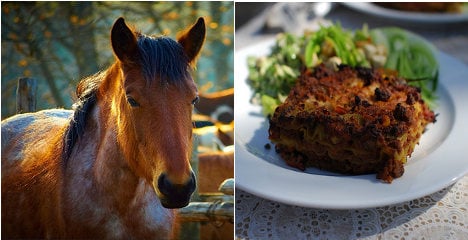Picard, which has hundreds of outlets across France that sell ready-to-eat meals, said the products were made by Comigel, the French firm which last week sparked the frozen food scandal now spreading across Europe.
The European Commission said Monday that Europe's horsemeat scandal appeared at this stage to be a labelling problem and definitely not a question of food safety.
"We're not talking about a food safety issue," Commission spokesman Frederic Vincent said on being queried at a news conference on the possibility of a British ban on EU meat exports.
"Nobody got sick as far as I know. It's just a labelling issue. So at this stage a ban on anything would not be appropriate."
Vincent's word come on the same day Anti-fraud agents on Monday inspected two French frozen food firms at the centre of a scandal over horsemeat sold as beef in supermarkets across Europe. French President François Hollande also said fraudsters must be punished.



 Please whitelist us to continue reading.
Please whitelist us to continue reading.
Member comments